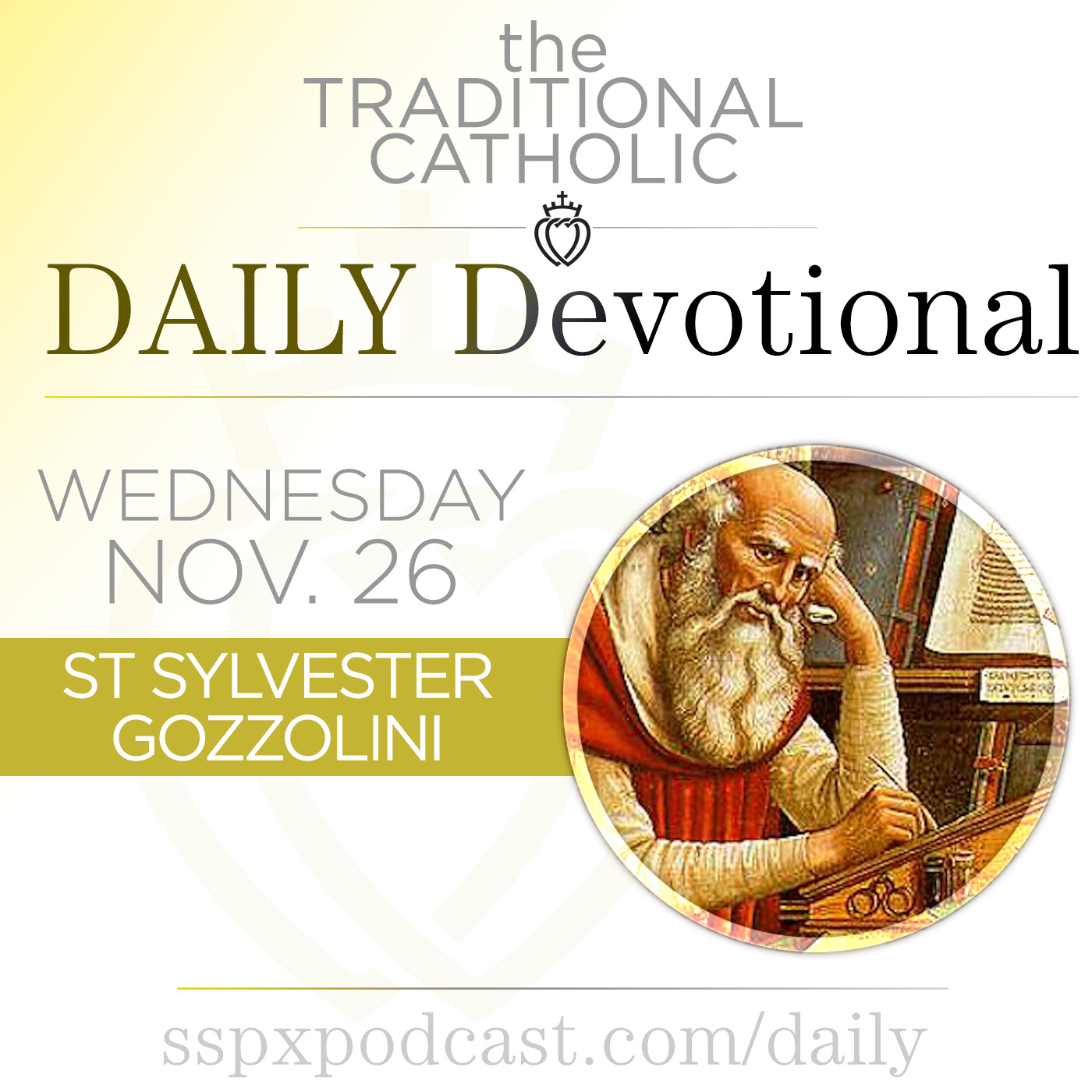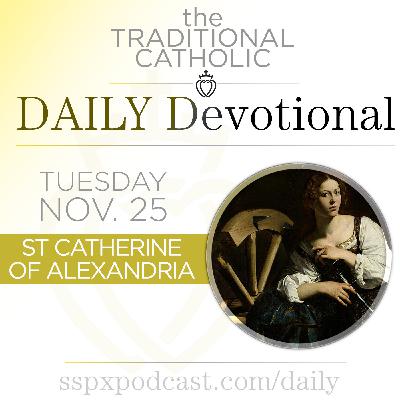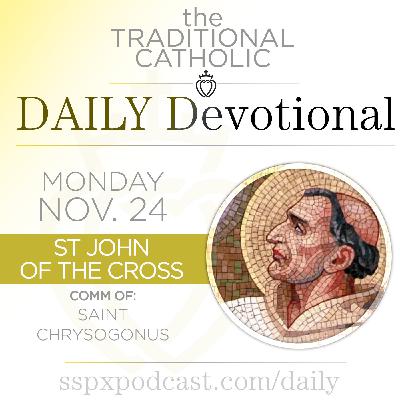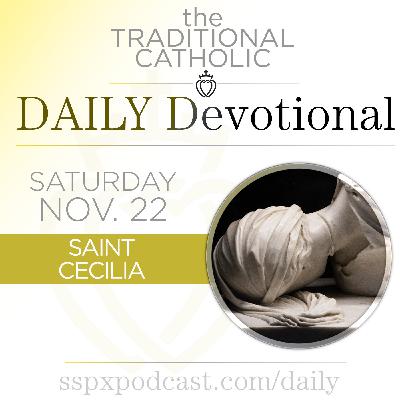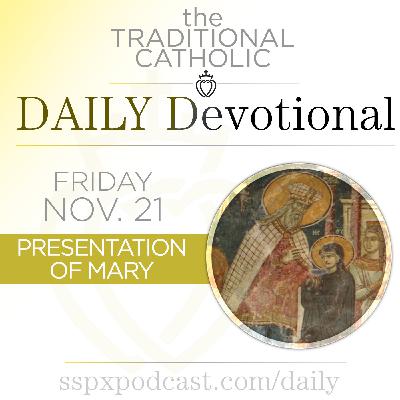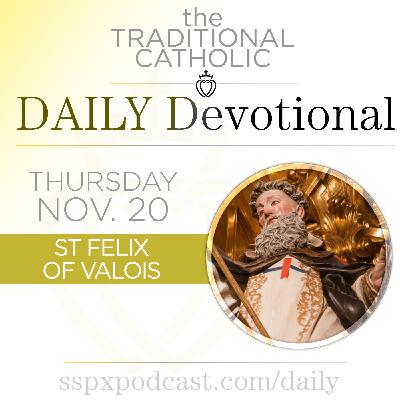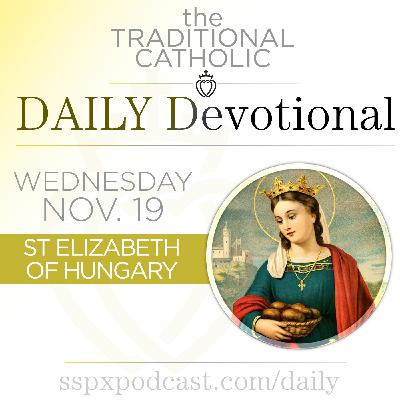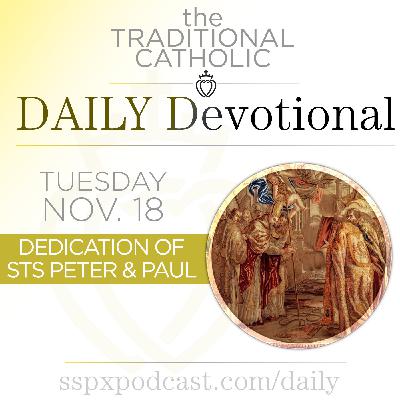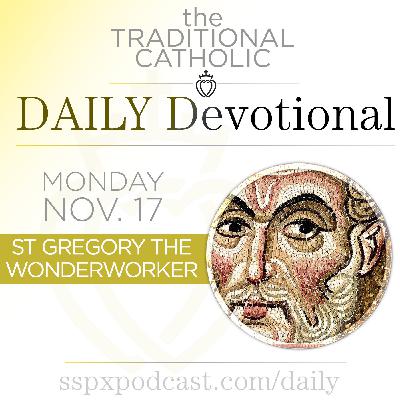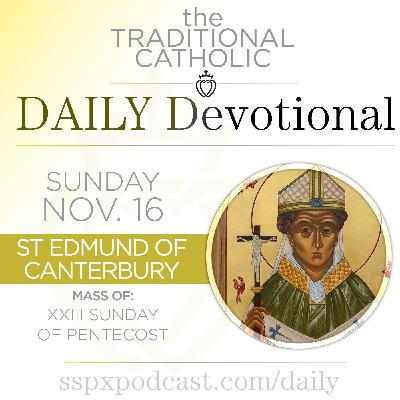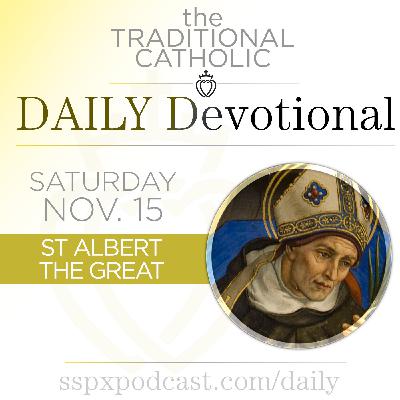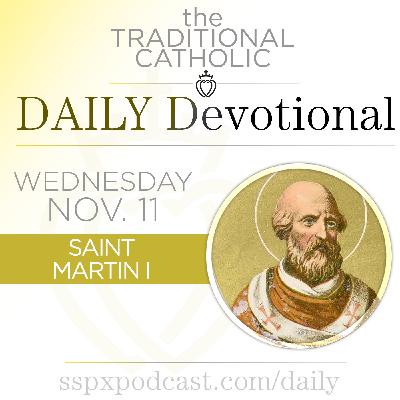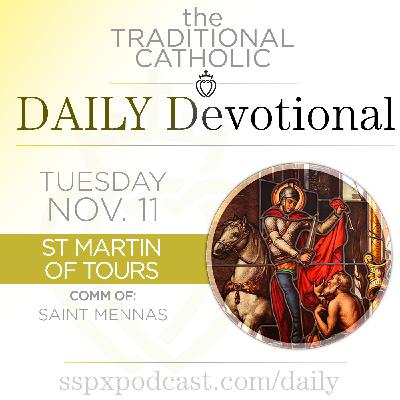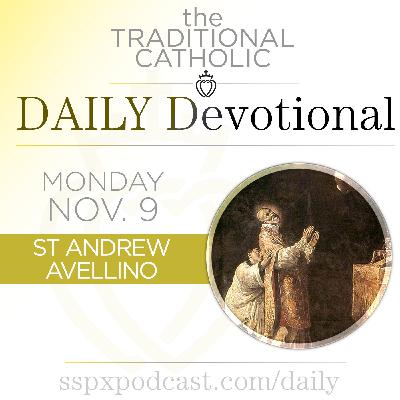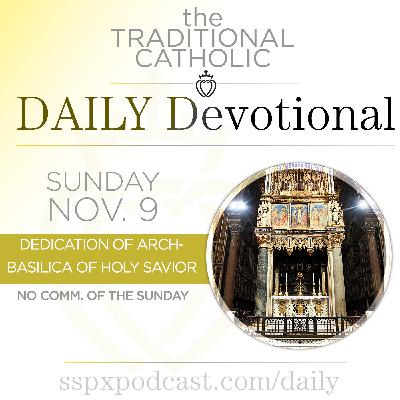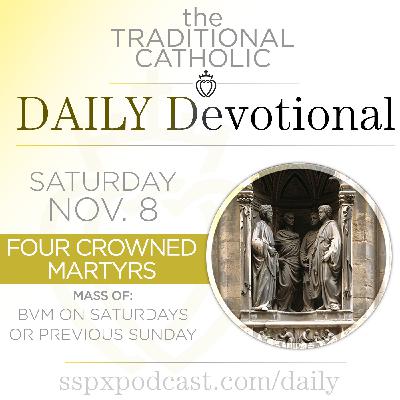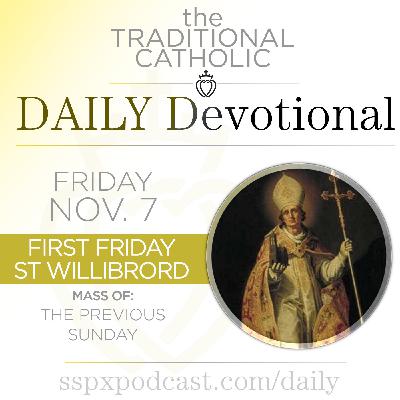Nov 26 – S Sylvester
Description
It’s the Feast of St. Sylvester, Abbot, 3rd Class, with the color of White. In this episode: the meditation: “The Pain of Loss ”, today’s news from the Church: “Pope Leo XIV Ready to Grant Broad Exemptions to Traditionis Custodes”, a preview of the Sermon: “Preparing for Judgment”, and today’s thought from the Archbishop.
Have feedback or questions about the DD or our other shows? podcast@sspx.org
Sources Used Today:
- “The Pain of Loss ” – Death, Judgment, Heaven, and Hell: Meditations on the Four Last Things by St. Alphonsus de Liguori
- “Pope Leo XIV Ready to Grant Broad Exemptions to Traditionis Custodes” (FSSPX.news)
- “Preparing for Judgment” (SSPX Sermons)
- The Spiritual Life – Archbishop Lefebvre (Angelus Press)
Saint Sylvester Gozzolini, the founder of the Sylvestrine Benedictines, was a man who discovered his vocation not in the noise of public life but in a moment of quiet shock. Born in 1177 to a noble family near Osimo in central Italy, he studied law to please his father. Yet his heart leaned toward theology, and he secretly pursued sacred studies. Everything changed when he attended the funeral of a friend. As the coffin was opened for identification, Sylvester saw the disfigured body and felt an inner jolt that pierced him to the core. The sight made him realize how much of his life had been spent chasing opinions and honors that would not last. From that moment he resolved to live entirely for God.
He became a priest and served faithfully, but a conflict with his bishop over matters of conscience pushed him to withdraw into solitude. Sylvester fled to a remote hillside near Fabriano, where he rebuilt a crumbling chapel and lived as a hermit. Word spread quickly. People sought him out for counsel, and young men began to gather around him. Sylvester tried to flee deeper into the wilderness, but each time he withdrew, more followers found him. Eventually he accepted that God wanted him to guide others, not hide from them.
In 1231 he formally founded his community, adopting the Rule of Saint Benedict but shaping it with a distinctive spirit: both contemplative and pastoral, committed to silence, liturgical beauty, and simplicity of life. The community grew rapidly, with houses spread across the Apennines. Their white habits became known throughout central Italy as a sign of purity and peace. Sylvester governed with gentleness. Those who lived with him said he carried an interior stillness that steadied the hearts of others. He was known to pray for hours in the forest, lifting his hands to heaven with a trust that seemed untouched by worry.
Stories of miracles followed him, including healings and visions given to his disciples for their encouragement. Yet he never sought attention. His holiness was the kind that allowed others to breathe more easily, the holiness of a man who had let go of everything but God.
He died in 1267, leaving behind a quiet reform within Benedictine life that has survived to this day. His feast on November 26 was long honored in Italy with prayers for vocations and for the grace of a peaceful heart. Saint Sylvester shows that God often builds communities through those who first sought only silence, and that true renewal begins in the hidden places of the soul.
Saint Sylvester, holy abbot and servant of God, pray for us!
- - - - - -
Please Support this Apostolate with 1-time or Monthly Donation >>
- - - - - -
Explore more:
- Subscribe to the email version of this Devotional- it's a perfect companion!
- Subscribe to this Podcastto receive this and all our audio episodes
- Subscribe to the SSPX YouTube channelfor video versions of our podcast series and Sermons
- FSSPX News Website:https://fsspx.news
- Visit the US District website:https://sspx.org/
What is the SSPX Podcast?
The SSPX Podcast is produced by Angelus Press, which has as its mission the fortification of traditional Catholics so that they can defend the Faith, and reaching out to those who have not yet found Tradition.
What is the SSPX?
The main goal of the Society of Saint Pius X is to preserve the Catholic Faith in its fullness and purity, to teach its truths, and to diffuse its virtues, especially through the Roman Catholic priesthood.
Authentic spiritual life, the sacraments, and the traditional liturgy are its primary means of bringing this life of grace to souls.
Although the traditional Latin Mass is the most visible and public expression of the work of the Society, we are committed to defending Catholic Tradition in its entirety: all of Catholic doctrine and morals as the Church has always defended them. What people need is the Catholic Faith, without compromise, with all the truth and beauty which accompanies it.
https://sspx.org

